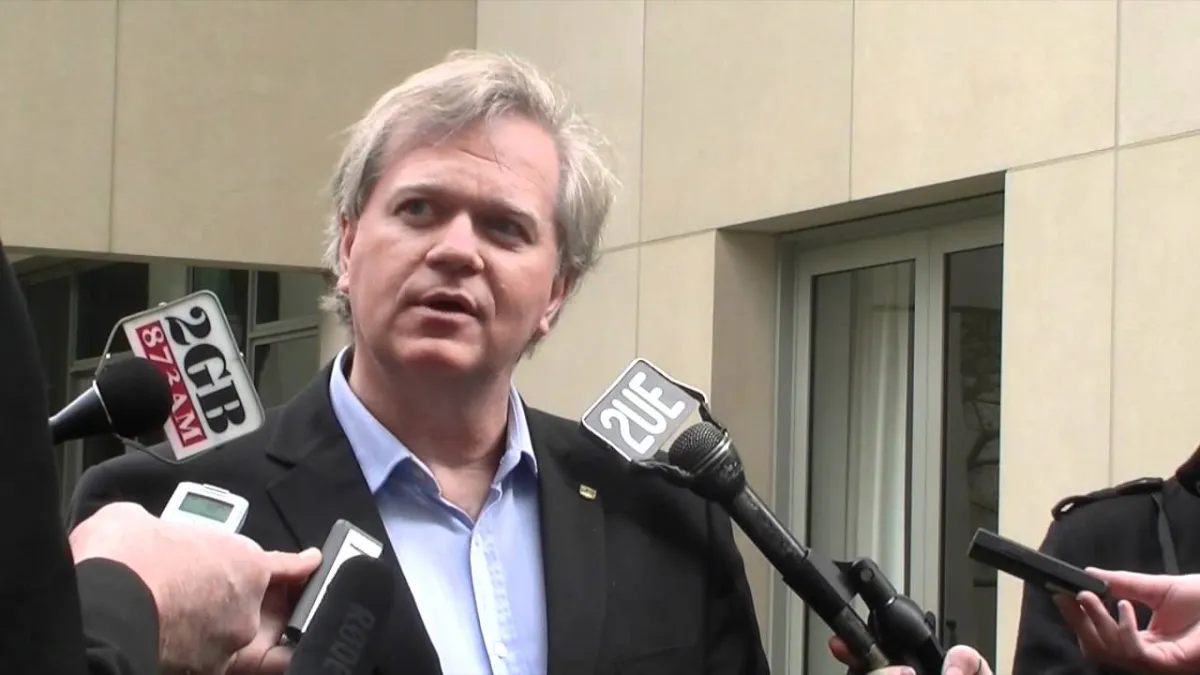RSAA astronomer wins Nobel Prize
Professor Brian Schmidt from the Research School of Astronomy and Astrophysics has won the 2011 Nobel Prize for Physics.
Announced in Stockholm on Tuesday, the award is shared with two US scientists – Professor Adam Riess from Johns Hopkins University and Professor Saul Perlmutter from the University of California, Berkeley. The award is for the discovery that the Universe is expanding at an accelerating rate.
Professor Perlmutter will receive one half of the 10 million Swedish kroner ($A1.5 million) prize, with professors Schmidt and Riess sharing the other half. It is the first time in almost 100 years that an Australian has won a Nobel Prize for Physics.
Professor Schmidt’s breakthrough was made while he led the High-Z SN Search Team, which included Dr Riess. Formed by Schmidt in 1994, the research team examined distant exploding stars called supernovae to measure the rate at which the Universe was moving apart. Professor Perlmutter researched the same field as part of a separate project. In 1998 both teams discovered that the Universe is speeding up as it expands, rather than slowing down as previously thought.
The announcement drew worldwide attention to Professor Schmidt, including a call from the White House. The next day he met with the Prime Minister, conducted 30 media interviews and taught a cosmology class.
Ms Gillard praised Professor Schmidt and his research team, saying the award would make all Australians proud.
“It is another day on which Aussie researchers make Australians proud,” said the Prime Minister.
The award has also attracted widespread praise from the field of science. Professor Suzanne Cory, president of the Australian Academy of Science said Professor Schmidt’s work had a profound and immediate effect on cosmology.
“Previously, it had been thought that the expansion of the universe was slowing, or proceeding at a steady rate. Astrophysicists say the finding that the expansion is in fact accelerating has completely altered our understanding of the universe and opened up important new fields in the study of time and dark energy,” she said.
The ANU community is also celebrating Professor Schmidt’s award, the sixth Nobel Prize to be won by an ANU researcher since the University’s foundation in 1946.
ANU Vice-Chancellor Professor Ian Young said Professor Schmidt’s work had changed the face of astronomy.
“The ANU community is overjoyed to hear the news that Professor Brian Schmidt has won the Nobel Prize for Physics,” he said. “His work has helped to unveil a universe that, to a large extent, was unknown to science.
“He has shown that what we see in the skies is but a tiny fraction of what is really out there. Brian reminds us of the infinite mysteries yet to be understood.
“ANU congratulates a great man and celebrates his magnificent achievement.”
Born in the US, Professor Schmidt came to the Mt Stromlo Observatory at ANU in 1995 after completing his PhD at Harvard. He is now working on the SkyMapper telescope, a new wide field survey telescope called at Siding Spring Observatory that will conduct the most detailed study ever of the southern sky.
In addition to this week’s Nobel Prize, Professor Schmidt has been awarded the Australian Government’s inaugural Malcolm McIntosh award for achievement in the Physical Sciences in 2000, The Australian Academy of Sciences Pawsey Medal in 2001, the Astronomical Society of India’s Vainu Bappu Medal in 2002, and an Australian Research Council Federation Fellowship in 2005. In 2006 Schmidt was jointly awarded the US$1M Shaw Prize for Astronomy, and shared the US$0.5M 2007 Gruber Prize for Cosmology with his High-Z SN Search Team colleagues.
When not star-gazing, Professor Schmidt enjoys a second career as a winemaker and owns a successful vineyard on the outskirts of Canberra.

